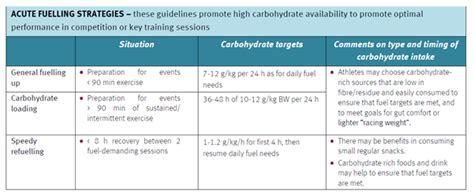What nutritional strategy prevents energy crashes for peak male performance?

The Root Cause of Energy Crashes in Men
For men striving for peak performance in their careers, fitness, or daily lives, an energy crash can be a significant roadblock. These sudden drops in vitality often stem from an unstable blood sugar level, triggered by poor dietary choices. Consuming highly refined carbohydrates or sugary snacks leads to a rapid spike in blood glucose, followed by an equally sharp decline as the body overcompensates with insulin. This roller-coaster effect leaves you feeling sluggish, irritable, and unfocused.
Preventing these energy dips isn’t about deprivation, but about strategic fueling. It’s about understanding how different foods impact your body and building a nutritional framework that supports sustained energy release, mental clarity, and physical stamina throughout your day.

The Foundation: Macronutrient Mastery
The cornerstone of consistent energy lies in a balanced intake of macronutrients: carbohydrates, proteins, and fats. Each plays a distinct role in fueling your body and preventing crashes.
Complex Carbohydrates: Your Sustained Fuel
Forget the myth that carbs are bad. The key is choosing the right ones. Complex carbohydrates, found in whole grains, fruits, vegetables, and legumes, are digested slowly. This slow release of glucose into the bloodstream provides a steady, prolonged energy supply, preventing the sharp spikes and subsequent crashes associated with simple sugars. Prioritize oats, brown rice, quinoa, sweet potatoes, and a wide array of fibrous vegetables.
Lean Proteins: Building Blocks and Satiety
Protein is vital for muscle repair and growth, but it also plays a crucial role in energy stability. Including a source of lean protein with every meal helps slow down the digestion of carbohydrates, further stabilizing blood sugar levels. Furthermore, protein promotes satiety, keeping hunger at bay and reducing the likelihood of reaching for quick-fix sugary snacks. Think chicken breast, fish, lean beef, eggs, Greek yogurt, and plant-based options like lentils and tofu.
Healthy Fats: Long-Term Energy and Hormonal Health
Healthy fats are often misunderstood but are essential for sustained energy and overall male health. They provide a concentrated source of calories, burning slowly and offering long-term fuel. Fats are also critical for hormone production, including testosterone, which is vital for male energy and vitality. Incorporate avocados, nuts, seeds, olive oil, and fatty fish into your diet.

Strategic Timing and Hydration
It’s not just what you eat, but when and how you eat it, alongside adequate hydration, that makes a significant difference.
Consistent Meal Timing
Eating smaller, more frequent meals throughout the day, rather than three large ones, can help maintain stable blood sugar levels. Aim for 3 main meals and 2-3 strategic snacks, roughly every 3-4 hours. This consistent intake prevents drastic drops in blood glucose that often lead to energy crashes and overeating.
The Power of Hydration
Dehydration, even mild, can significantly impair physical and cognitive performance, leading to fatigue and reduced energy. Water is crucial for nutrient transport, waste removal, and every metabolic process in the body. Aim to drink plenty of water throughout the day, adjusting for activity levels and climate. Electrolyte-rich beverages can also be beneficial during intense workouts.

Beyond Macros: Micronutrients and Mindful Eating
Essential Micronutrients for Energy
While macronutrients provide the bulk of your energy, micronutrients (vitamins and minerals) act as cofactors in the energy production pathways. B vitamins (B1, B2, B3, B5, B6, B7, B9, B12) are critical for converting food into energy. Magnesium plays a role in hundreds of biochemical reactions, including energy creation. Iron is essential for oxygen transport. Ensure your diet is rich in diverse fruits, vegetables, and fortified foods to meet these micronutrient needs.
Mindful Eating and Avoiding Pitfalls
Pay attention to your body’s hunger and fullness cues. Eating mindfully can help you make better food choices and avoid overeating. Be wary of common pitfalls like excessive caffeine, which can lead to a crash once its effects wear off, and highly processed foods laden with unhealthy fats, sugars, and artificial ingredients that offer minimal nutritional value and contribute to energy instability.

Conclusion: Fueling Your Best Self
Preventing energy crashes for peak male performance is a comprehensive strategy. It involves embracing complex carbohydrates, lean proteins, and healthy fats in balanced proportions, distributed across regular meals and snacks. Coupled with consistent hydration and a focus on essential micronutrients, this nutritional approach will stabilize your blood sugar, provide sustained energy, and optimize your physical and mental capabilities. By making these intentional dietary choices, you empower yourself to conquer daily challenges with unwavering vitality and achieve your highest potential.









